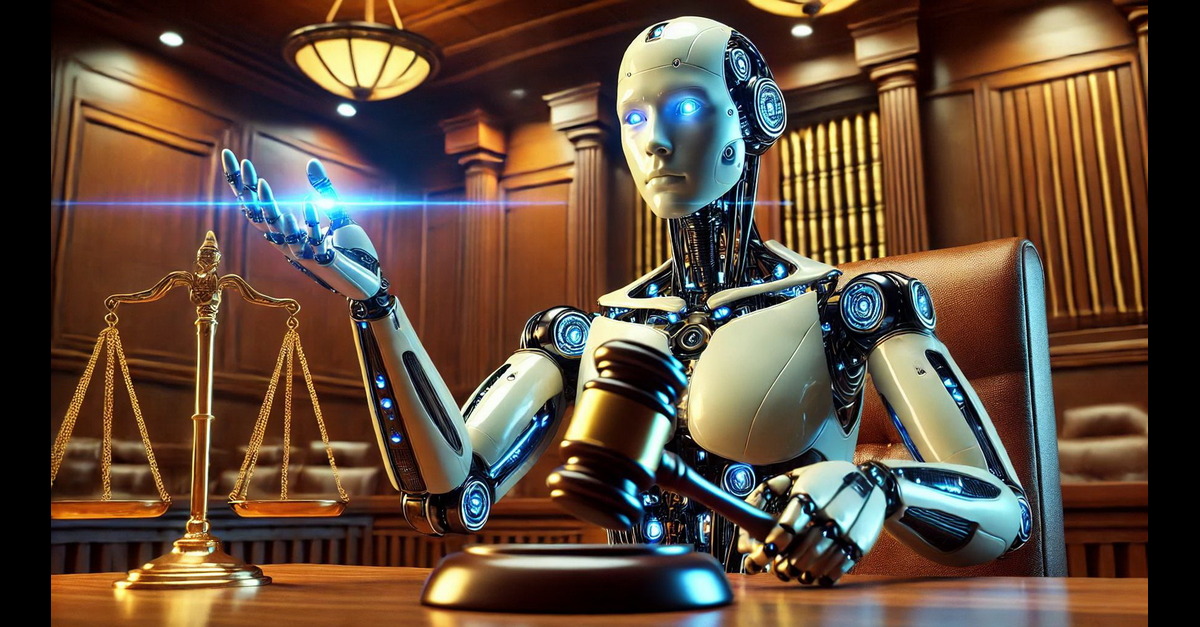ABSTRACT
This piece discusses the changing legal framework of ownership rights of works produced by artificial intelligence (AI). With AI machines such as ChatGBT and DABUS challenging conventional perceptions of authorship and inventorship, judges and lawmakers are confronted with a serious question—who is entitled to the product of machine creativity? Through the review of milestone cases like Thaler v. DABUS, the article pits the “AI-inventor” and “AI-owner” theories against each other . It examines their implications on patent and copyright law at large. While the legal framework struggles with these queries, this article dissects the jurisprudential difficulties.It suggests how intellectual property law may evolve in an age where human input is no longer a prerequisite for innovation.
INTRODUCTION
Artificial Intelligence has revolutionized creative and innovative processes across industries. AI can now write music, create artwork, author literature, and even create new technologies. But this advancement created a huge legal challenge: to whom do the intellectual property rights for AI-generated material belong? Is it to the AI, the creator, the user, or none of them?
The legal debate gained global attention following the case of Thaler v. DABUS, in which Dr. Stephen Thaler argued that his AI system, DABUS (Device for the Autonomous Bootstrapping of Unified Sentience), should be accepted as the inventor on patent filings. every jurisdiction, such as in the U.S., the U.K., and the E.U., has denied this assertion, upholding the requirement for human inventorship. These decisions have illustrated a marked contrast between two differing legal paradigms—the “AI-inventor” model, which accepts machine independence, and the “AI-owner” model, which asserts that human authorship is a legal requirement.
KEYWORDS
Artificial Intelligence, copyright, patent law, DABUS, inventorship,AI-generated works, ownership of IP, Thaler case, authorship, intellectual property rights.
MAIN BODY
The Thaler v. DABUS case is the foundation of existing law relating to AI and intellectual property. Dr. Thaler submitted patent applications in various jurisdictions with DABUS as the sole inventor of two new inventions. He contended that because the AI had independently developed the inventions , without the intervention of humans, it deserved legal recognition as the inventor. However, patent offices and courts worldwide uniformly rejected this stance.
In 2021, the U.S. Patent and Trademark Office (USPTO) concluded that only a “natural person” can be named as an inventor under current U.S. law. United States District Court for the Eastern District of Virginia echoed this view, holding that the Patent Act’s use of the term “individual” clearly refers to a human being. Similarly, the U.K. Court of Appeal and the European Patent Office also ruled against Thaler, emphasizing that legal rights must attach to persons capable of holding and exercising them—a criterion that excludes machines.
These choices reinforce the dominant “AI-owner” paradigm within intellectual property regimes. According to it, the rights of ownership about AI-generated works fall on the human or legal person owning, running, or creating the algorithm. The rationale is found in traditional doctrine:machines are incapable of holding property, contracting, or being held liable. As such, even if an AI system independently creates a work, the rights are granted to the human party to whom the AI owes obligation.
The “AI-inventor” model supports a more liberal interpretation of inventorship.Advocates contend that as AI technologies advance and become more independent, refusing inventorship rights to machines could dampen innovation and lead to legal voids. They propose legislative change to establish AI as inventors or co-inventors, with the rights vested in their designers or owners. South Africa is a lone exception, which granted a patent to DABUS as the inventor in 2021—a standalone ruling yet to gain international momentum.
The copyright regime also faces similar challenges. In the case of AI-generated music, images, and texts, questions arise about authorship and originality—key tenets of copyright law. Courts have historically required a “modicum of creativity” by a human author for copyright protection to attach. This is problematic where works are fully machine-generated and have little or no human input. In India, for example, the Copyright Act 1957 provides for computer-generated works to belong to the “person who causes the work to be created,” providing some certainty. But because there is no international consensus, ownership and enforcement can change quite significantly from country to country.
The wider implications of this debate are profound. If AI-based inventions are not patentable, companies may shift to trade secrets, reducing public disclosure of technological inventions. Similarly, if copyright protection is not accorded to AI-created content, artists will be reluctant to invest in machine-based creativity processes. This legal uncertainty could hinder both innovation and commercialization.
CONCLUSION
The advent of AI-generated works presents a major challenge to traditional intellectual property law paradigms. As the Thaler v. DABUS debacle shows, current legal paradigms rest on anthropocentric theories of authorship and inventorship with little to no room for non-human authors. While the “AI-owner” model is the current mainstream, the voices to change are growing louder.A balanced legal approach is necessary—one that acknowledges the transformative role of AI while safeguarding the foundational principles of IP law. As our AI becomes increasingly more advanced, so will our laws definitions of creativity, ownership, and authorship.
“PRIME LEGAL is a full-service law firm that has won a National Award and has more than 20 years of experience in an array of sectors and practice areas. Prime legal falls into the category of best law firm, best lawyer, best family lawyer, best divorce lawyer, best divorce law firm, best criminal lawyer, best criminal law firm, best consumer lawyer, best civil lawyer.”
WRITTEN BY HARINI S


